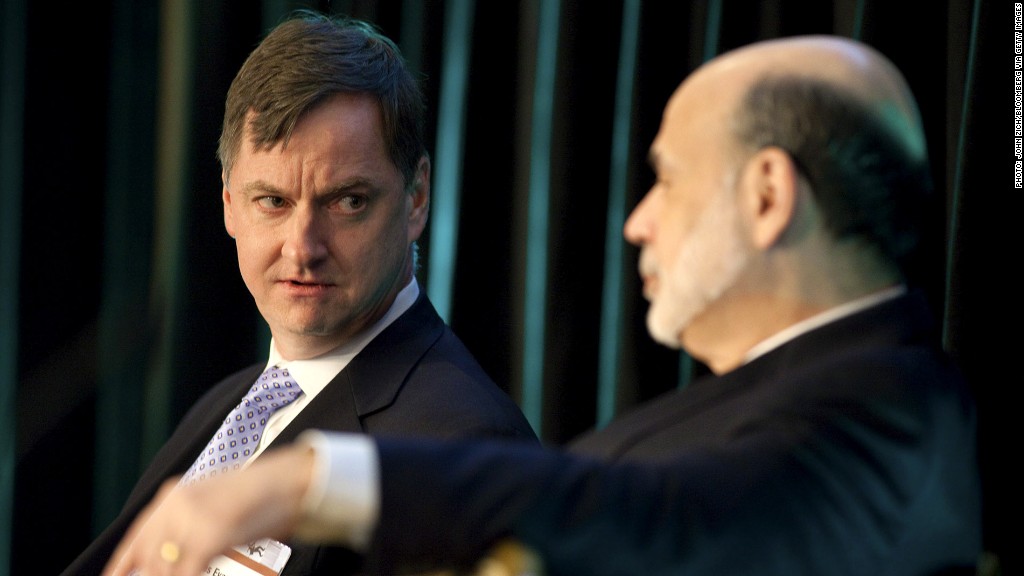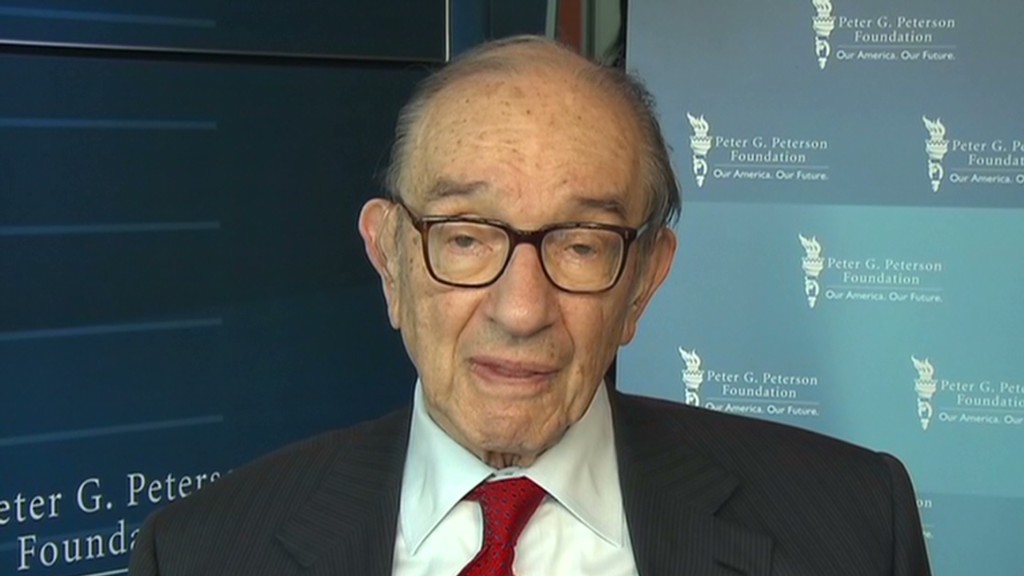
Just how far should the unemployment rate fall before the Federal Reserve raises interest rates?
Charles Evans, president of the Chicago Fed, wants the central bank to keep the federal funds rate near zero until unemployment falls to 6.5% -- a jobless rate not seen since 2008.
Evans is not a voting member this year, but in January he will rotate into a voting role on the Fed's policymaking committee. For about a year, he has been urging his colleagues to publish clear economic targets that would guide the central bank's policies.
Known as the 7/3 rule, his initial suggestion would have kept interest rates near zero until the unemployment rate falls to 7% or inflation exceeds 3% a year.
Now, he's changing that proposal, suggesting the central bank keep low interest rates in place even longer. He wants to see the unemployment rate fall to at least 6.5% and inflation not exceed 2.5% a year.
The hope behind the policy is that numerical targets will lift some of the mystery surrounding the Fed's decisions. As economic data is released, the public can base their expectations for Fed policy on a clearer picture of the central bank's goals.
"If the extended period of low policy rates is well communicated, then uncertainty regarding future interest rate movements can be reduced," Evans said in prepared remarks to be presented before the C.D. Howe Institute in Toronto, Canada, Tuesday.
Related: Check the unemployment rate in your state
The idea of adopting numerical targets is gaining some sway within the Fed. Janet Yellen, second in command to Chairman Ben Bernanke on the Federal Reserve Board, supported the idea in a speech two weeks ago.
"I support this approach because it would enable the public to immediately adjust its expectations concerning the timing of liftoff in response to new information affecting the economic outlook," Yellen said, adding that this market response would serve as an "automatic stabilizer for the economy."

Boston Fed President Eric Rosengren -- who like Evans, will rotate into a voting role next year -- has also thrown his support behind the idea, advocating for a 7.25% target for the unemployment rate.
Meanwhile, Minneapolis Fed President Narayana Kocherlakota -- who won't have a vote again until 2014 -- has suggested thresholds of 5.5% for unemployment and 2.25% for inflation.
The Fed has kept interest rates near zero since late 2008 in an effort to stimulate the economy. While the unemployment rate has since fallen slightly to 7.9%, the Fed is still unsatisfied with that level and has been pursuing additional alternative policies to boost the economy further.
At its September meeting, the Federal Reserve launched a third round of quantitative easing, which entails buying $40 billion in mortgage-backed securities each month. The Fed has said it plans to keep that policy in place until the outlook for the job market improves "substantially."
The Fed's policymaking committee is next scheduled to meet Dec. 11-12.


